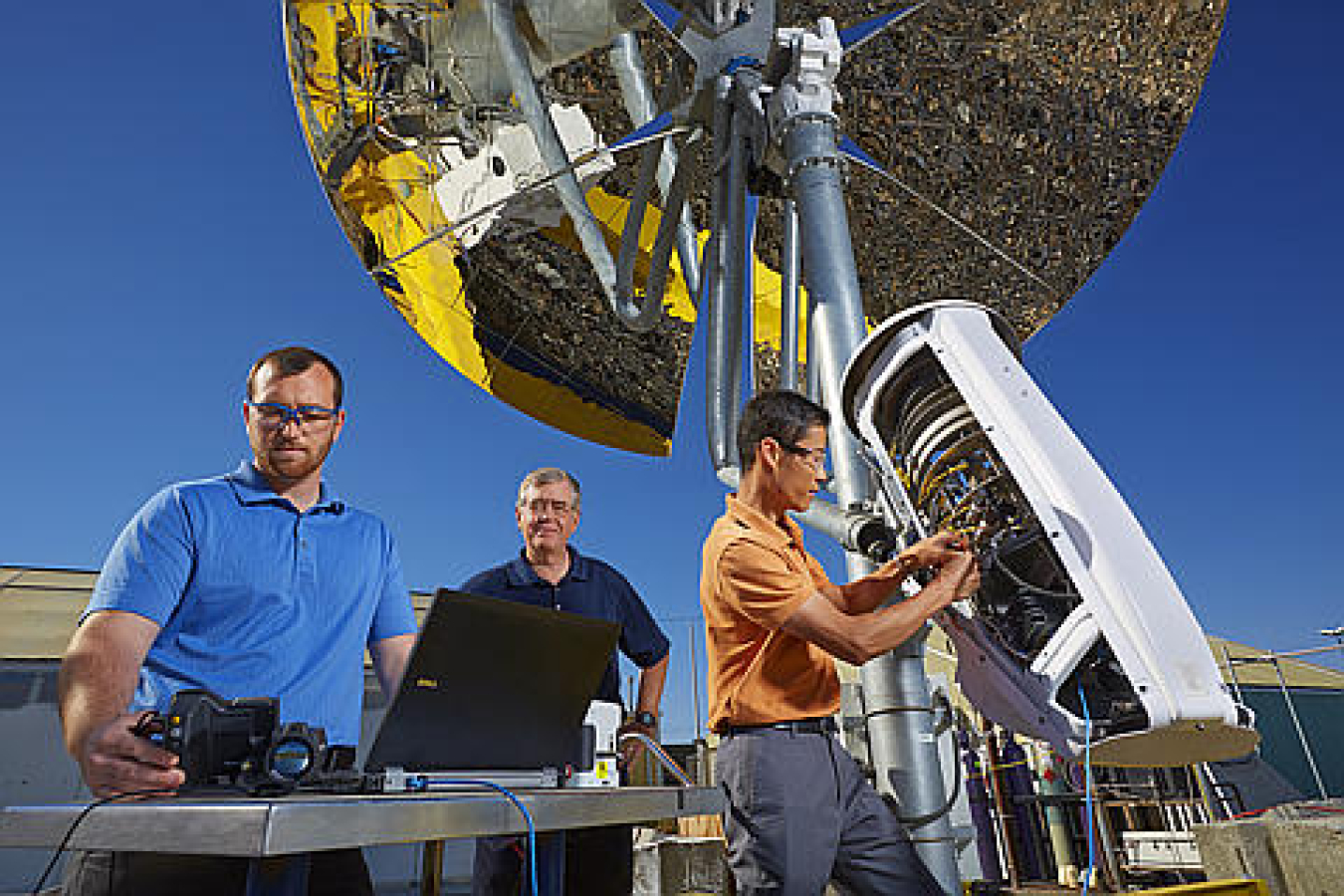Starting today, small businesses can apply to access the Energy Department’s world-class facilities and an enterprise of more than 10,000 leading...
Office of Critical Minerals and Energy Innovation
September 23, 2015
Pacific Northwest National Laboratory’s prototype thermochemical conversion device, funded by EERE and a natural gas company, is installed in front of a concentrating solar power dish. The device converts natural gas into the more energy-rich fuel syngas. Small clean tech businesses may be interested in technical assistance related to system components, the process itself, or downstream products such as hydrogen, methanol, or chemicals.
Small businesses are the backbone of the U.S. economy, accounting for three-quarters of all new jobs in this country. Today, 23 million small businesses in this country represent more than 90% of all employers, account for more than half of all private sector workers, and generate three out of every four new jobs, according to the U.S. Chamber of Commerce’s Council on Small Business. These small businesses create new products, technologies, and business plans that fuel our nation’s prosperity.
To overcome the technical challenges inherent in bringing innovations to market, the Energy Department launched its Small Business Vouchers Pilot in July to help clean energy small businesses connect with national laboratories.
Starting today, small businesses can now apply to access the Department’s world-class facilities and an enterprise of more than 10,000 leading scientists and engineers at five of our national laboratories – Oak Ridge National Laboratory, the National Renewable Energy Laboratory, Lawrence Berkeley National Laboratory, Sandia National Laboratories and Pacific Northwest National Laboratory – through the pilot.
The main goal is to make national laboratory capabilities more affordable and easily accessible by small businesses. The pilot intends to accomplish this goal by focusing on essential outreach, networking, competition and review, matchmaking and voucher activities, and in general, making the whole process as small business friendly as possible by creating a single entry point (www.sbv.org) to the labs.
Critical technology challenges presented by clean energy small businesses will be evaluated in a uniform and fair process. The technology challenges from highly ranked small businesses will be properly matched with proposed solutions and capabilities from the national labs. The Energy Department will then provide vouchers valued between $50,000 and $300,000 to complete the proposed scope of work at the national laboratory.
The vouchers are limited to specific research and development areas. These areas include: advanced manufacturing, bioenergy, buildings, fuel cells, geothermal, solar, water, wind and vehicles technologies. Both joint research and development that can generate new intellectual property, as well as technology assistance projects, are possible collaborative pursuits under the pilot. The solutions and knowledge gained through these public-private partnerships will be transferrable to other small businesses looking to advance clean energy technologies.
Learn more about the National Laboratory Impact Initiative, along with requirements to submit a Request for Assistance (RFA), by visiting the Small Business Vouchers Pilot website. The first round of RFAs are due October 23 at 5 p.m. Eastern time. The participating labs have set up concierges to assist small businesses with questions on how to work with the labs, and to arrange introductions to the laboratories’ technical experts in clean energy areas. Two additional rounds are anticipated to be announced in February and May/June next year.

